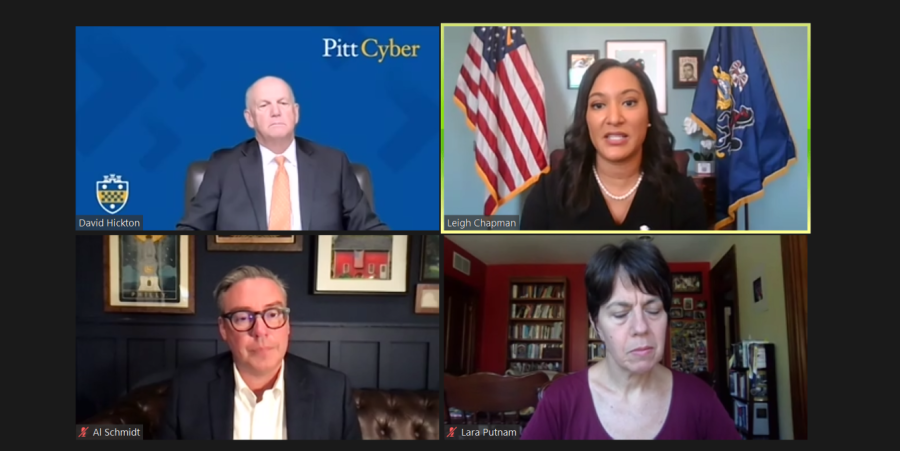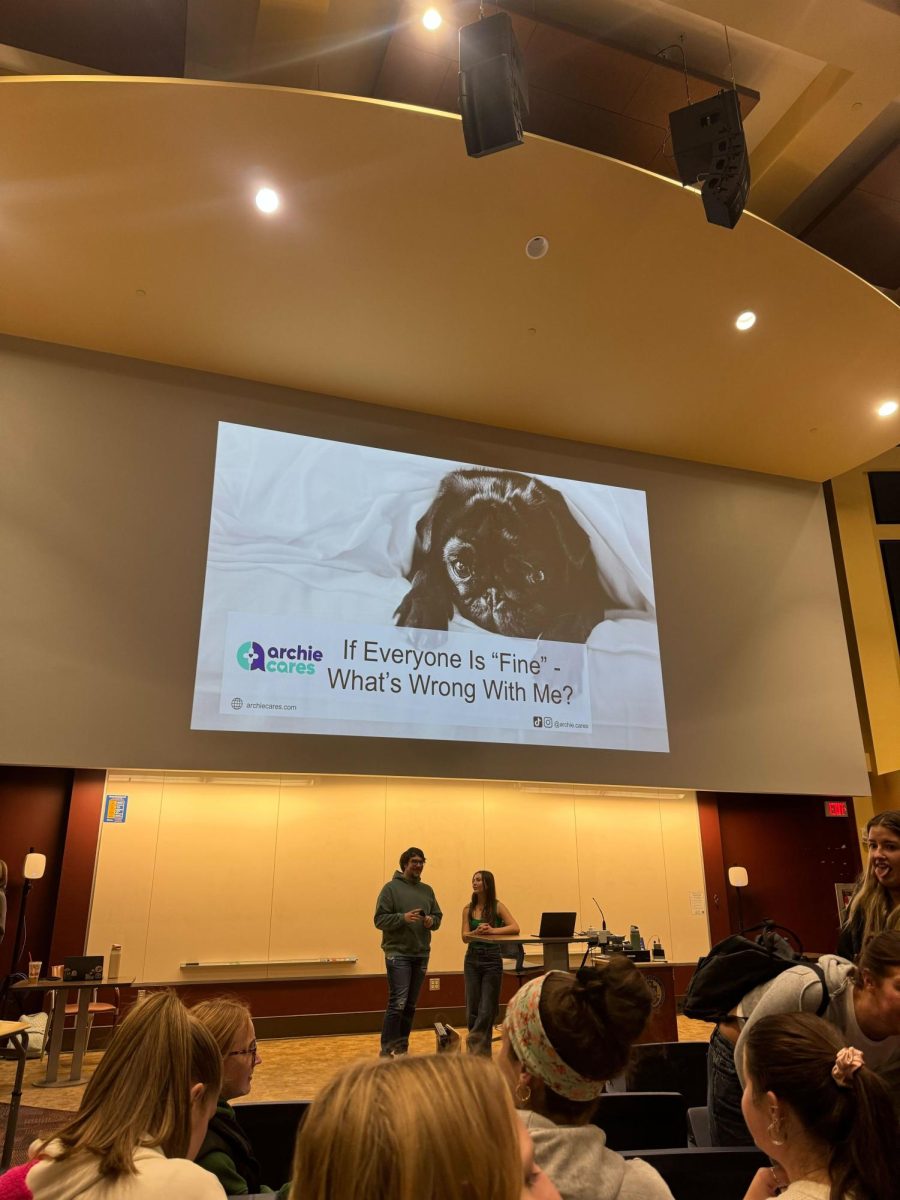Pitt Cyber hosts discussion on electoral legitimacy in light of 2022 midterms
“Securing Your Vote: Pennsylvania’s 2022 Election” hosted by Pitt Cyber and the Institute of Politics on Tuesday.
October 14, 2022
According to Al Schmidt, a Pennsylvania electoral official, the 2020 Presidential Election was an electoral campaign deeply affected by the narrative of voting fraud.
“I can’t imagine the misinformation that we would be seeing now if we did not have a paper ballot record of every vote that was cast in the 2020 election,” Schmidt said. “Obviously, evidence and the truth only gets you so far and we’re still facing a lot of distrust about elections.”
David Hickton, the founding director of Pitt Cyber, organized a discussion titled “Securing Your Vote: Pennsylvania’s 2022 Election” over Zoom on Tuesday regarding election security with some prominent Pennsylvania election representatives. In addition to Schmidt’s participation, Leigh Chapman, Acting Secretary of the Commonwealth, also took part in the discussion. Both Schmidt and Chapman shared their knowledge of the election process, while Lara Putnam, professor of history at Pitt with particular expertise in American demographics, gave her insight into the notions of misinformation and voting fraud, and the public outcry they have caused.
Schmidt, the former commissioner on the Philadelphia County Board of Elections, was responsible for counting each ballot in Philadelphia — a hotspot for voter fraud allegations during the 2020 elections. According to Schmidt, former President Trump specifically mentioned Schmidt in his assessment of voting fraud allegedly happening in Pennsylvania, which resulted in threats of retaliation.
Schmidt said he was threatened as a result of being targeted by former President Trump over social media.
“You’re walking into the lion’s den and you know better watch yourself,” Schmidt said. “Unfortunately, in my case, after the former president tweeted at me by name it unleashed a whole torrent of very specific and very graphic threats, primarily targeting my three little kids. And the whole point of that is to coerce and to intimidate.”
According to Schmidt, the retaliation electoral officials and ballot counters received in 2020 was widespread.
“This [public retaliation] happened and happens across the country endlessly since the 2020 election, and many had it far worse than I did,” Schmidt said. “So I would ask that we be sort of mindful of what election administrators are facing throughout the country.”
Putnam said there is a growing distrust about the electoral system, despite the abundance of protocols in place to prevent voting fraud.
“What’s so deeply ironic is that despite all of the safeguards that you’ve just heard about, as a result of the way the 2020 election played out, we have a real crisis of trust in the integrity of the electoral system,” Putnam said.
Pennsylvania’s election system is actually reliable in practice in contrast to the criticism it receives, according to Putnam.
“We don’t have a crisis in actual integrity,” Putnam said. “The actual integrity of the election system has never been stronger, but…only two thirds of Pennsylvanians say they trust that officials in their local county accurately counted votes in 2020.”
Chapman said Pennsylvania is well prepared for the upcoming midterms, and has thorough protocols to prevent different kinds of voter fraud.
“Every mail-in ballot actually has an outer barcode that is associated with the voter. So a mail ballot cannot be copied or duplicated,” Chapman said. “Mail ballot voters must present an acceptable identification in order to vote by mail, and these identification requirements are different from the requirements to vote at the polls on Election Day where the voter appears in person.”
According to Chapman, there were additional safeguards in place during all elections — including the 2020 election — against irregular mail-in votes.
“Voters who request a mail-in ballot and return their mail invalid are noted in the poll book,” Chapman said. “If that voter shows up at the polls to vote and they have not returned their mail ballot, they are required to surrender their mail-in ballot at the polls, or vote provisionally.”
Chapman said he is trying to spread the message that official results for the midterms could take several days.
“Every opportunity I have to speak with the public and the media, I’m really trying to set that expectation that it’s going to take days for us to have official returns in Pennsylvania [for the 2022 midterm] and it’s because of the fact that we do not have pre-canvassing in Pennsylvania,” Chapman said.
According to Chapman, there is also a chance that the midterm results will not be called the night of the election.
“Unfortunately, we aren’t going to be able to call an election the night of the election. So it’s important that we’re setting these expectations,” Chapman said. “It’s not because anything nefarious is happening — it’s the process playing out. We need to ensure that every eligible vote is counted. And that’s what’s happening.”
Schmidt said preventing voter fraud concerns will be important for the 2022 midterms.
“For election administrators, there’s only so much you can control but to make sure that elections are run in a way that is transparent, in a way that is bipartisan and in a way that is observed by representatives of the parties,” Schmidt said.
Transparency will be vital to the upcoming midterm election security and to future elections as well, according to Schmidt.
“It’s important that we maintain the transparency of that process, and not allow security concerns and threats get in the way of disrupting that transparency, although, you know, you have to have certain [security] safeguards,” Schmidt said.



